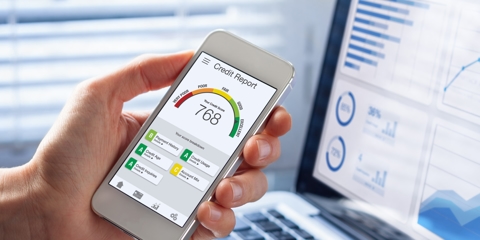Due to the economic fallout of the COVID-19 pandemic, millions of tenants throughout the United States have only been able to stay in their homes because of state and federal eviction moratoriums. Unpaid rent, however, has continued to accrue.
If you’ve found yourself in this stressful situation, your landlord may not wait long to begin the eviction process. You might be wondering whether bankruptcy might delay or prevent an eviction.
Generally, the answer is yes, but read on for an in-depth discussion on bankruptcy and evictions. For a professional assessment of your situation and personalized recommendations, don’t wait to get in touch with us here at Holston & Huntley.
The Automatic Stay
Whether you file Chapter 7 or Chapter 13 bankruptcy, the court will immediately issue an order called the automatic stay. This court order prohibits all collection actions for the duration of your case.
As a result, your creditors, lenders, and collection agencies cannot:
- Contact you in any way
- File a collections lawsuit against you
- Foreclose your home
- Repossess your vehicle
- Garnish your wages
- Freeze your bank account
- Place a lien on your property
- Evict you from your home (with certain exceptions)
Because of this protection, bankruptcy provides temporary yet effective relief from even the most drastic collection strategies.
Using Bankruptcy to Achieve Long-Term Financial Relief
While the automatic stay may protect you from eviction for the duration of your case, this safety may or may not last once the court issues the final order. This may depend on several factors, but we’ll take a look at one in particular: which chapter you file.
Let’s say, for example, that you file Chapter 7 bankruptcy. This form of bankruptcy is a process that generally takes 4-6 months, during which the trustee may liquidate some of your property if you cannot protect it with state or federal exemptions (although most people can protect everything they own). The court will then discharge any unsecured debt that wasn’t paid with the proceeds from the liquidation process.
Because Chapter 7 does not involve a repayment plan, your landlord will evict you once the automatic stay lifts. The court can eliminate your liability for your back rent, but, unless you come to a payment agreement with your landlord, you will most likely need to leave the property soon after the end of your case.
On the other hand, let’s say you file Chapter 13 bankruptcy. Under Chapter 13, you will propose a repayment plan that requires you to make monthly payments for 3-5 years. Because your plan will include your back rent, you should, theoretically, be caught up on payments by the end of your case. Your landlord would then have no reason to evict you once the automatic stay lifts.
These are general situations, and they may not be entirely true for your situation. An experienced attorney can help you understand how Chapter 7 or Chapter 13 can protect you from eviction. In the meantime, here are a few exceptions to be aware of before assuming that bankruptcy will rectify your situation.
When Bankruptcy Cannot Protect You
In limited situations, bankruptcy will not protect you from an eviction—even temporarily.
For example, you MAY be evicted soon after filing bankruptcy if:
- Your landlord already obtained a court judgment against you
- You used illegal drugs on the premises
- Your landlord files a motion to lift the automatic stay (which the court will most likely grant, as the eviction will not affect the bankruptcy estate)
- You’ve filed bankruptcy too many times before, and the court chooses not to issue an automatic stay
These situations are more nuanced, however, why is why we recommend getting in touch with us for a more accurate assessment of how bankruptcy may or may not delay or prevent your eviction.
Get Started with a Free Consultation
At Holston & Huntley, we are deeply grateful for the opportunity to help clients stay in their homes, protect their property, and achieve long-term freedom from financial hardship. If you are struggling to make ends meet, bring your questions and concerns to our trusted law firm. We can assess your options and develop a personalized strategy that can help you achieve financial relief in as little time as possible.
Call (404) 620-3337 or contact us online to schedule your complimentary consultation today.





